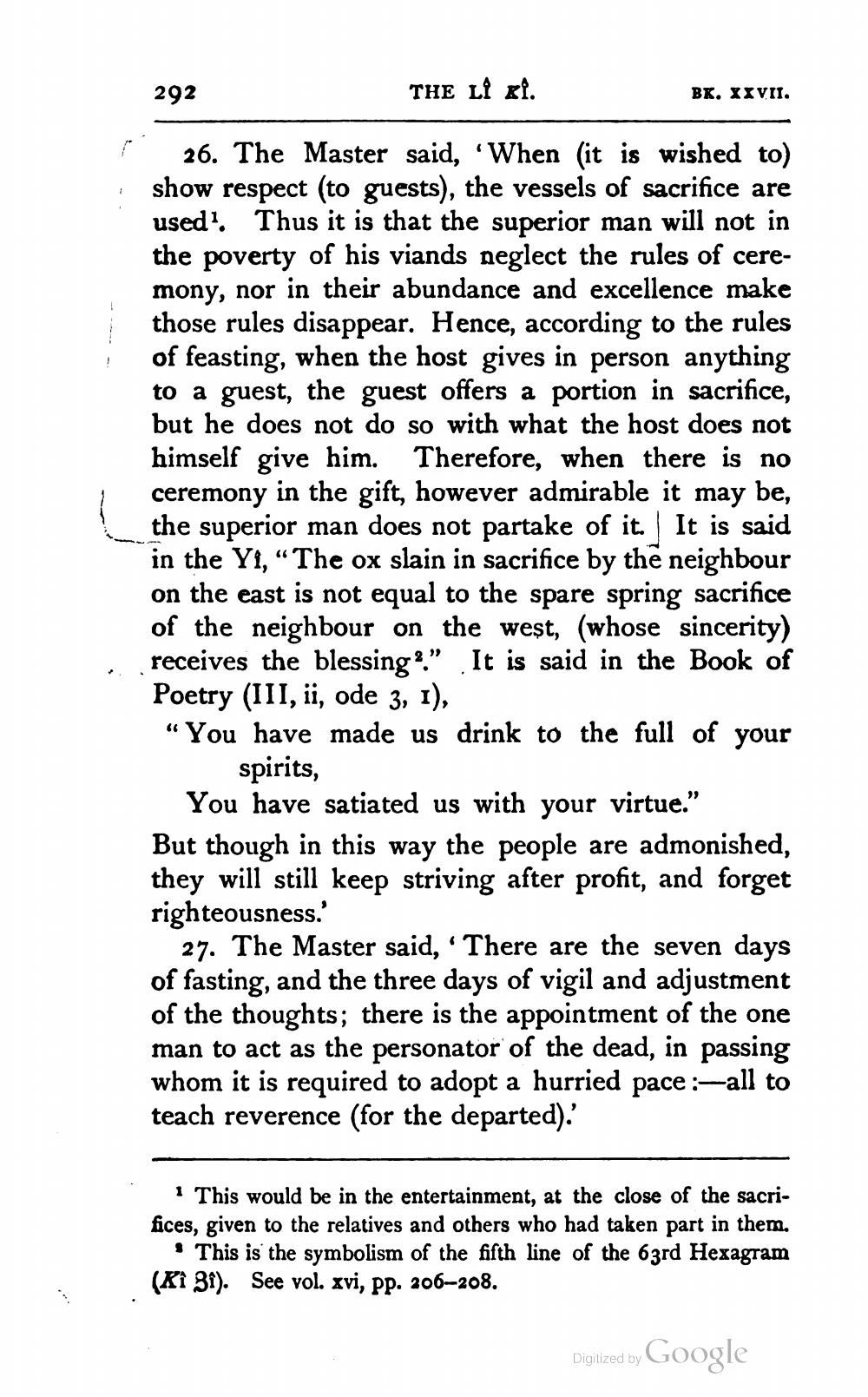________________
292
THE LÎ xt.
BK. XXVII.
26. The Master said, 'When (it is wished to) show respect to guests), the vessels of sacrifice are used". Thus it is that the superior man will not in the poverty of his viands neglect the rules of ceremony, nor in their abundance and excellence make those rules disappear. Hence, according to the rules of feasting, when the host gives in person anything to a guest, the guest offers a portion in sacrifice, but he does not do so with what the host does not himself give him. Therefore, when there is no ceremony in the gift, however admirable it may be, the superior man does not partake of it. It is said in the Yi, “The ox slain in sacrifice by the neighbour on the east is not equal to the spare spring sacrifice of the neighbour on the west, (whose sincerity) receives the blessing?." It is said in the Book of Poetry (III, ii, ode 3, 1), "You have made us drink to the full of your
spirits, You have satiated us with your virtue." But though in this way the people are admonished, they will still keep striving after profit, and forget righteousness.
27. The Master said, “There are the seven days of fasting, and the three days of vigil and adjustment of the thoughts; there is the appointment of the one man to act as the personator of the dead, in passing whom it is required to adopt a hurried pace :-all to teach reverence (for the departed)
1 This would be in the entertainment, at the close of the sacrifices, given to the relatives and others who had taken part in them.
· This is the symbolism of the fifth line of the 63rd Hexagram (Ki 3i). See vol. xvi, pp. 206–208.
Digitized by Google




